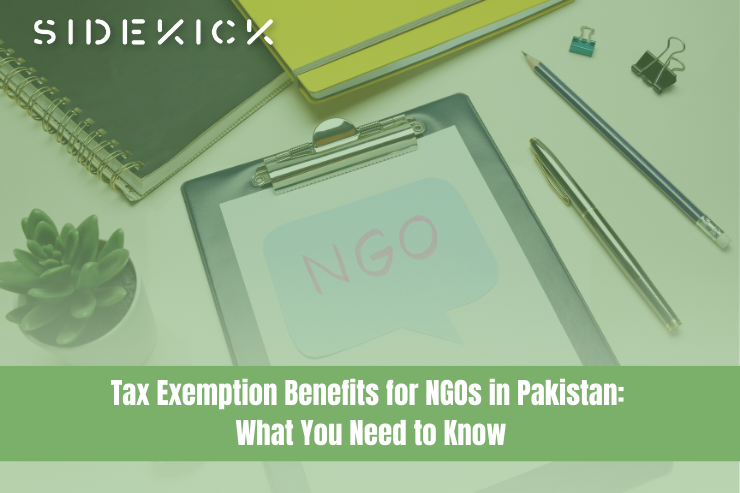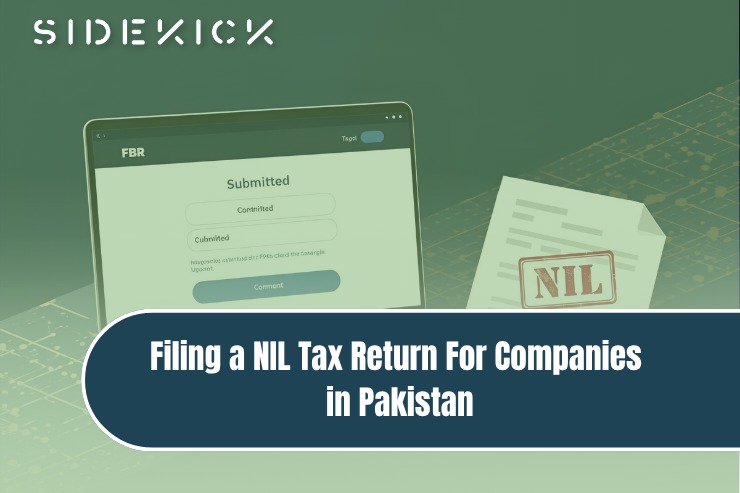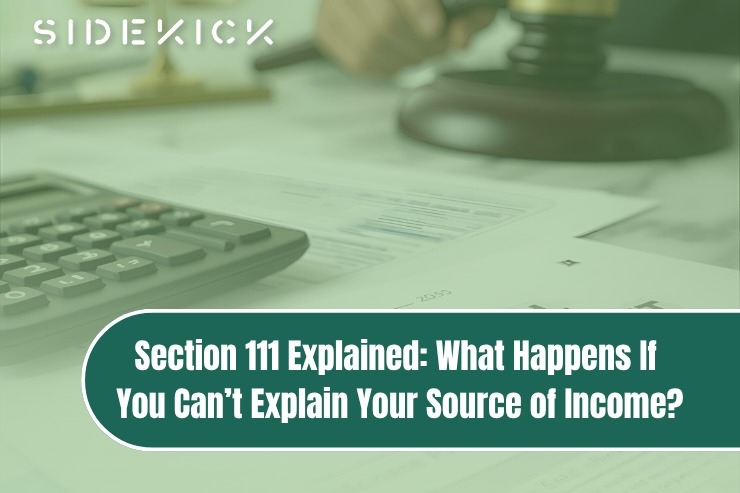Non-Governmental Organizations (NGOs) undertake significant activities in Pakistan to alleviate the country’s social and economic problems related to education, health, poverty reduction, and disaster relief.
The Pakistani government offers NGOs many exemptions on income taxes to reduce burdens and encourage resource efficiency. However, it is always difficult for NGOs to understand these exemptions and fulfill the eligibility criteria. This article will talk about tax exemptions that NGOs can get in detail.
Why Tax Exemptions Matter for NGOs
Tax exemptions would help NGOs fully utilize their efforts by saving a lot of expenses in operations, which could otherwise be spent on charitable causes. Without these privileges, NGOs cannot sustain their programs. The legal framework governing such exemptions is the Income Tax Ordinance 2001, which has the strictest possible conditions for obtaining them.
Key Tax Exemption Benefits for NGOs
Income Tax Exemption
Entities registered as NPOs under Section 2(36) of the Income Tax Ordinance, 2001, enjoy a tax credit (20%-30%) from income taxes for donations, grants, and other charity-oriented sources. However, suppose its accumulative surplus exceeds 25% of yearly total income. In that case, an NPO is subject to a 10% tax on the surplus.
Sales Tax and Withholding Tax Exemptions
The registered NPOs are exempted from sales tax and withholding tax on donations and certain payments. These exemptions ensure that the NGOs fully utilize their funding, which can be directed towards projects after deducting no taxes.
100% Tax Credit (Section 100C)
NPOs can avail 100% tax credit in Section 100C of the Income Tax Ordinance. This tax credit is available for the incomes below:
- Donations and voluntary contributions
- Interest from loans or investments
- Income on proper
- Business Income (Contingent that it is used for charitable purposes)
To qualify, NGOs will be required to, among others, file income tax returns, and administrative costs cannot exceed 15% of the total income received.
Exemption from Withholding Agent Obligations
NGOs that will qualify for a 100 percent tax credit will also be granted exemption from withholding agent status by Section 159. This automatically reduces the administrative load and allows such NGOs to redirect their efforts to other core operations.
Need help with tax exemption?
Get in Touch
Fill out the form below, and we will be in touch shortly.
Benefits to Donors
The donors to registered NGOs have been provided with tax relief under Section 61 of the Income Tax Ordinance. This section encompasses tax credit advantages that can lower an individual’s taxable income by a maximum of 30% and a company’s by 20%.
Eligibility Criteria for Tax Exemptions
To be eligible for tax exemptions, NGOs need to fulfill certain basic criteria:
Registration as an NPO:
When NGOs are registered under laws such as the Trusts Act of 1882, Societies Registration Act of 1860, or Section 42 of the Companies Act, they must also acquire a National Tax Number (NTN) and Sales Tax Registration Number (STRN) from the Federal Board of Revenue (FBR).
Approval Under Section 2(36):
NGOs must obtain clearance under Section 2(36) of the Income Tax Ordinance from the FBR. These include:
- Certificate of purpose and registration from the Pakistan Centre of Philanthropy (PCP).
- Audited financial statements
- A description of the NGOs objectives and activities
Once you have certification from the PCP, you are eligible for section 2(36) exemption. For more information on PCP registration click here.
Compliance with Tax Laws:
The NGOs must comply with tax regulations by paying annual tax returns, maintaining accurate financial records, and using funds only for charitable activities. If a tax law is breached, the tax-exempt status is withdrawn.
Surplus Fund Management:
The NGOs, therefore, would need to maintain their excess funds below 25% of total annual income so as not to be taxed for excess funds.
Process of Obtaining Tax Exemptions
The process of getting tax exemptions encompasses the following:
Step 1: NGO Registration
First, get the NGO registered under the prevalent laws and obtain NTN and STRN from the FBR.
Step 2: NPO Status Application
Under Section 2(36), NGOs are required to file an application with the FBR for approval. Documents required:
- Certificate of Registration
- Audited Financial Statements
- List of Office-Bearers and Board Members
Step 3: Verification and Approval
The FBR will analyze the application, validate the information provided, and, if necessary, seek additional documentation. Once approved, NGOs are exempted from taxes for the first three years. The concession would be automatic, although renewal is also possible.
Compliance Requirements and Challenges
Although tax exemptions offer great advantages, NGOs face several challenges in terms of compliance:
Administrative Burden
NGOs shall keep detailed records of their financials, file tax returns, and comply with withholding tax obligations. This work is resource-intensive, especially for smaller organizations.
Risk of Regulatory Scrutiny
The FBR and other agencies keep strict vigilance on NGOs to check their misuse of funds or get involved in illegal practices. Transparency and accountability are always ensured to stay exempted from tax.
Surplus Fund Management
Surplus fund management is important as NGOs are required not to have surplus funds over 25%. Proper budgeting and planning for finances avoid penalties on account of taxes.
Recent Updates and FBR Initiatives
The FBR updated its list of approved welfare organizations that enjoy tax exemption status in 2024. The strategy has been adopted with the hope that philanthropy and welfare work at the grass-roots level by NGOs working in areas like education, healthcare, and disaster management will flourish. Besides this, the FBR has enhanced its compliance checks for tax exemption by legitimate NPOs to weed out illegitimate NPOs.
Simplify Tax Compliance with Sidekick
NGO compliance on tax exemptions is quite challenging to handle; thus, we at Sidekick have arrived to provide an answer to the problems! Using consultants who are well-acquainted with Pakistan’s tax laws and requirements, Sidekick ensures your organization secures approval, files proper returns, and maximizes the tax credit for you.
So, leave all the paperwork and compliance hassles to us while you can continue doing what truly matters- positively impacting. So, team up with us now and eliminate tax management hassles!
Conclusion
Tax exemption benefits are essential for NGOs in Pakistan, enabling them to utilize more resources for social development initiatives. However, the legal and regulatory framework is pretty complex. Understanding the eligibility criteria, application process, and compliance requirements will help NGOs optimize their operations and maximize their impact.
For NGOs hoping to maximize the benefits they provide, tax experts can be consulted as the right guide. With proper planning and compliance, NGOs can continue their work and benefit from financial relief through tax exemption.







